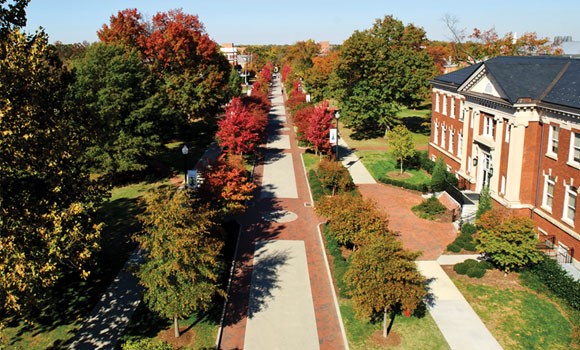The University of North Carolina at Greensboro is a challenging, supportive and engaged community. Founded in 1891, UNCG is the largest and most diverse university in the Triad, serving more than 19,000 students. Standing apart from other universities, the UNCG community is joined together by a shared value: We define excellence not only by the people we attract, but by the meaningful contributions they make.

Enrollment
UNCG has nearly 17,929 on-campus students and more than 1,700 others in extension programs enrolled for the 2016-17 academic year. Sixty-five percent of resident undergraduate students are female. Twenty-seven percent of resident undergraduate students and 15 percent of graduate students are African-American.
Classes & Faculty
UNCG offers 86 undergraduate programs in more than 125 areas of study, 74 masters programs and 32 doctoral programs. Student/faculty ratio is approximately 18:1. Fifty-five percent of full-time faculty are tenured and 80 percent hold a doctorate or terminal degree in their field.
Academic Calendar
Two semesters, August to May, and two summer sessions.
Campus Life
UNCG's picturesque campus includes more than 30 academic buildings and 30 residence buildings on 250 acres. Opportunities for students include more than 200 student organizations, 15 intercollegiate athletic teams, intramurals, club sports, wellness center, campus golf course, student newspaper, student literary magazine, student radio station, music and choral groups, drama and dance performance groups, concert and lecture series, film series, internships, Outdoor Adventures program, fraternities and sororities and community service.
Costs
For full-time students living on campus, 2016-17 basic costs (including tuition, fees and room and board) total approximately $15,344 for in-state students and $30,206 for out-of-state students.
Housing
UNCG Housing and Residence Life offers an array of on-campus living options for students, including:
- Three residential colleges for students who want to live and enroll in courses with their learning community peers while developing close, meaningful relationships with faculty;
- Ten living-learning communities for students who want to live and enroll in courses with their learning community peers while participating in related co-curricular programs; and
- An honors college residence hall and two themed communities.
Freshmen are encouraged to live on campus.





